|
|
BRAIN SCAN CHANGES DURING 4 WEEKS OF
TREATMENT
FOR GENERALIZED ANXIETY DISORDER (GAD) |
|
|
| |
|
(12 Sessions Combining Acupoint Stimulation & Mental
Activation) |
|
|
1. Normal (Ideal) Profile |
|
|
| |
|
| |
|
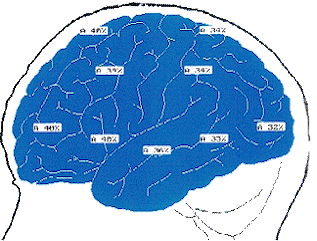 |
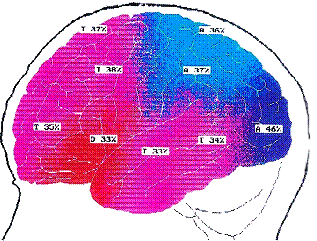 |
|
| |
| |
|
|
3. AFTER 4 TAPPING SESSIONS |
4. AFTER 8 SESSIONS |
5. AFTER 12 SESSIONS |
|
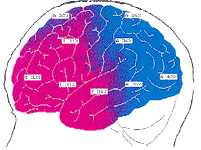 |
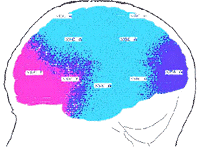 |
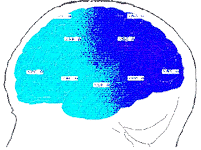 |
|
| |
|
| |
| The images are digitized
EEG brain scans. The colors represent the ratio of
brain frequencies (alpha, beta, and theta waves) and sub-frequencies
within given areas of the brain. |
| |
| |
Blue = normal ratio of wave
frequencies (according to data bases) |
| |
Turq. = slightly dysfunctional ratio |
| |
Pink = moderately dysfunctional ratio |
| |
Red = highly
dysfunctional ratio of wave frequencies |
|
| |
|
Context:
-
The profile shown for this patient (Images 2 – 5)
is typical of GAD patients in the
South America study who responded positively to the stimulation
of acupoints. A decrease in the intensity and frequency of GAD
symptoms correlated with shifts toward normal levels of wave
frequency ratios in the cortex.
-
GAD patients treated with Cognitive Behavior
Therapy showed a similar progression, but it required a longer
period of time for the frontal cortex to get to near-normal ratios
of wave frequencies, and the normalization of the ratios tended to
revert toward pre-treatment levels a year after the end of the
psychotherapy. This regression was less likely to occur for patients
treated with acupoint stimulation.
-
GAD patients treated with medications such as
alprazolam tended to show little or no cortex normalization, even as
symptoms were reduced while the drug was being taken. This suggests
that the medication is suppressing the symptoms without addressing
the wave frequency imbalances.
-
Not captured by these images, but shown by other
pre/post-treatment measures, are changes in deeper brain structures
that EEG brain maps cannot reach, biochemical changes in ions,
neurotransmitters, and hormones, and changes in neural circuits.
|
| |
| |
|
Images provided for Energy Psychology Interactive
by Joaquín Andrade, M.D. |
| |
| |
| |
| |